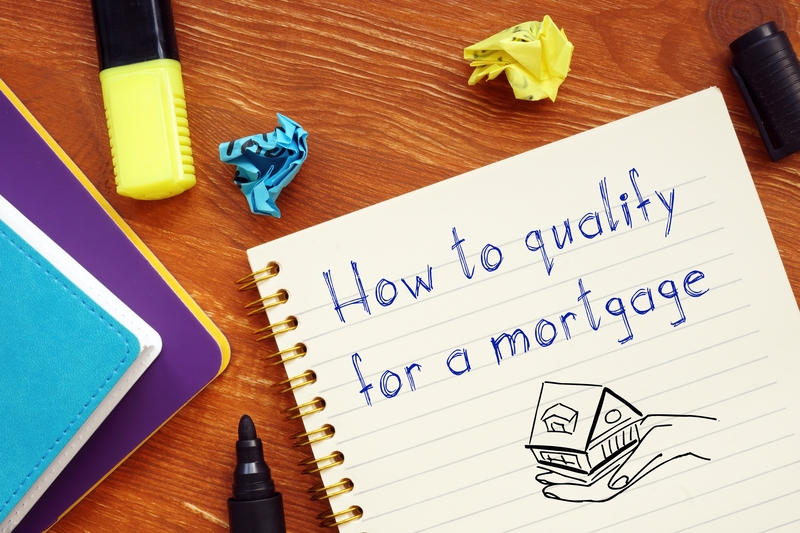
The Insider's Guide to Qualifying for a Mortgage. Try our AI Chatgpt - What is a mortgage, it includes a mortgage calculator, it shows and explains an amortization schedule and what is a mortgage - free, fun, easy.
Picture this: You're standing on the porch of your very own home, key in hand, ready to start the next chapter of your life. Sounds amazing, right? But for many aspiring homeowners, the path to that moment can seem daunting, especially when it comes to securing a mortgage. Don't worry - I'm here to demystify the process and help you understand exactly what it takes to qualify for that dream home loan.
From Zillow - Qualifying for a Mortgage
As a mortgage loan officer with over a decade of experience, I've guided countless families through this journey. Today, I'm pulling back the curtain to share the insider secrets that can make all the difference in your home-buying adventure.
The Four C's: Your Ticket to Mortgage Approval
When it comes to evaluating mortgage applications, lenders like myself focus on what we call "The Four C's": Capacity, Capital, Collateral, and Credit. From Freddie Mac, The 4 C's of Qualifying for a Mortgage. Let's break these down in a way that actually makes sense:
1. Capacity: Can You Handle the Payments?
This is all about your ability to repay the loan. We're not just looking at your salary - we want to see the whole picture.
John Smith, a veteran real estate investor, puts it perfectly: "Your income is like the engine of your financial car. The bigger and more reliable it is, the smoother your mortgage journey will be."
Try the AI mortgage calculator to find out what you can afford.
We'll examine:
- Your income sources (salary, freelance work, investments)
- Employment history (stability is key!)
- Monthly debts (credit cards, car loans, student loans)
Pro Tip: Start tracking your expenses now. Being able to show you've got your spending under control can really impress lenders.
2. Capital: What's in Your Piggy Bank?
This isn't just about your down payment (though that's important too). We want to see that you have some financial cushion.
Sarah Johnson, a first-time homebuyer I worked with last year, shared: "I was surprised when my loan officer asked about my savings. It turns out, having that emergency fund made a huge difference in getting approved!"
We'll look at:
- Savings accounts
- Investments (stocks, bonds, retirement accounts)
- Other assets you could liquidate if needed
Pro Tip: Don't drain your savings for the down payment. Lenders love to see reserves!
3. Collateral: The Home itself
Remember, the house you're buying acts as security for the loan. We need to make sure it's worth what you're paying.
Mark Davis, a seasoned appraiser, explains it well: "Think of collateral as the safety net for the lender. A well-maintained, fairly priced home in a good neighborhood is like gold in the mortgage world."
We'll consider:
- The home's appraised value
- The condition of the property
- Location, location, location!
Pro Tip: Fall in love with the house, but keep your emotions in check. An overpriced home can derail your mortgage plans.
What percentage of income should go to a mortgage?
4. Credit: Your Financial Report Card
Your credit score is like a snapshot of your financial responsibility. It tells us how well you've managed debt in the past.
Lisa Chen, a credit counselor I often recommend to clients, says: "Your credit score isn't just a number - it's a reflection of your financial habits. Good credit can open doors to better rates and terms."
We'll analyze:
- Your credit score (aim for 620+, but higher is better)
- Payment history
- Length of credit history
- Types of credit used
Pro Tip: Check your credit report for free at AnnualCreditReport.com. Dispute any errors you find - it could boost your score!
Putting It All Together: Your Mortgage Eligibility Roadmap
Now that you know the secret sauce, let's walk through how to assess your own eligibility:
1. Gather Your Financial Info:
- Calculate your monthly income (before taxes)
- List out all your monthly debts
- Determine how much you can put down
- Decide on your preferred loan term (15, 20, 30 years)
2. Crunch the Numbers:
Use an online mortgage calculator to estimate your potential monthly payment. Include:
- Home price
- Down payment
- Loan term
- Interest rate (check current rates online)
- Property taxes and insurance (your real estate agent can help estimate these)
3. Calculate Your Debt-to-Income Ratio (DTI):
This is a biggie! Add up all your monthly debts (including the estimated mortgage payment) and divide by your gross monthly income. Most lenders prefer a DTI of 43% or lower.
4. Evaluate Your Situation:
How does your DTI look? Is your credit score in good shape? Do you have some savings set aside? Be honest with yourself - it'll save you headaches down the road.
Real Talk: My Client Jessica's Journey
Let me share a quick story about my client Jessica. She came to me frustrated after being denied by two other lenders. Her situation:
- Monthly Income: $5,000
- Monthly Debts: $500
- Dream Home Price: $300,000
- Down Payment: $30,000 (10%)
- Credit Score: 680
On paper, things looked okay. But digging deeper, we discovered her DTI would be too high with the mortgage she wanted. Instead of giving up, we worked together:
- She paid off a high-interest credit card, lowering her monthly debts
- We found a slightly less expensive home that still met her needs
- She took a free homebuyer education course at SmartHousebuyer.com
Three months later, Jessica was approved and is now happily settling into her new home!
Your Next Steps
Ready to take the plunge? Here's what to do:
- Get your financial house in order (pun intended!)
- Check your credit and address any issues
- Save, save, save - both for your down payment and reserves
- Consider taking a homebuyer education course (I always recommend SmartHousebuyer.com)
- Reach out to a local lender (like me!) for a personalized assessment
How to qualify for a Federal Housing Authority (FHA) home loan.
 |
FHA loans have been helping people become homeowners since 1934. How do we do it? The Federal Housing Administration (FHA) - which is part of HUD - insures the loan, so your lender can offer you a better deal.
- Low down payments
- Low closing costs
- Easy credit qualifying
What does FHA have for you?
Buying your first home?
FHA might be just what you need. Your down payment can be as low as 3.5% of the purchase price. Available on 1-4 unit properties.
Financial help for seniors
Are you 62 or older? Do you live in your home? Do you own it outright or have a low loan balance? If you can answer "yes" to all of these questions, then the FHA Reverse Mortgage might be right for you. It lets you convert a portion of your equity into cash.
Want to make your home more energy efficient?
You can include the costs of energy improvements into an FHA Energy-Efficient Mortgage.
How about manufactured housing and mobile homes?
Yes, FHA has financing for mobile homes and factory-built housing. We have two loan products - one for those who own the land that the home is on and another for mobile homes that are - or will be - located in mobile home parks.
Ask an FHA lender to tell you more about FHA loan products.
Find an FHA lender
Need advice? Contact a HUD-approved housing counselor or call
(800) 569-4287
Need help with your downpayment? State and local governments offer programs that can help. Find a program near you.
Remember, every situation is unique. What works for one borrower might not work for another. That's why it's crucial to work with a knowledgeable loan officer who can guide you through the process.
The path to homeownership might seem winding, but with the right knowledge and preparation, you'll be unlocking that front door before you know it.






